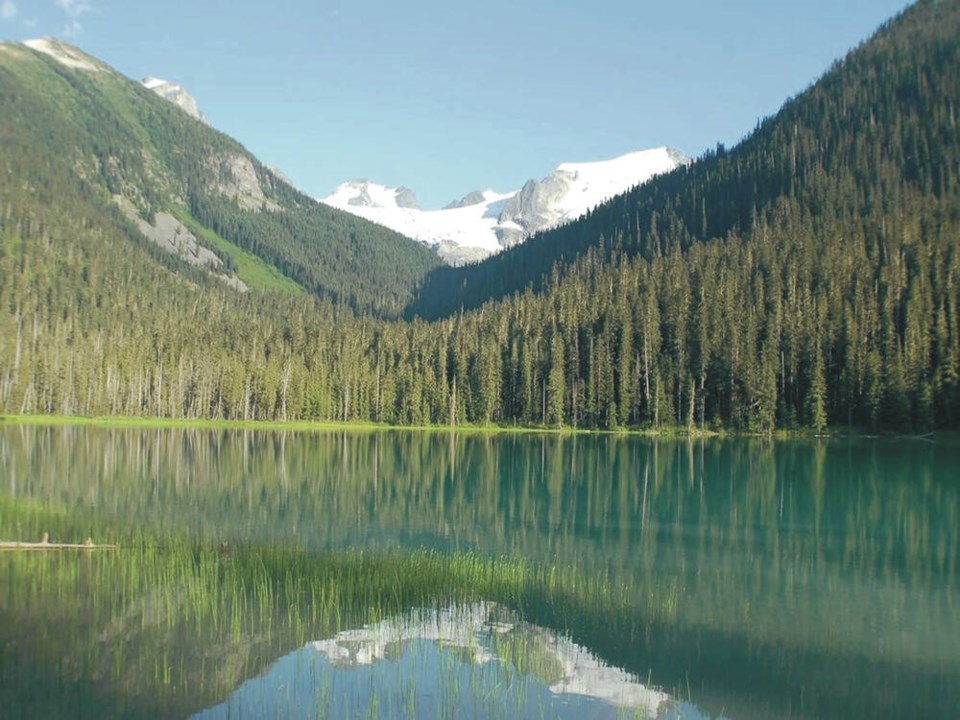The closing of a popular provincial park by two First Nations is a consequence of the B.C. government’s failure to negotiate treaties with Indigenous communities, says a prominent Indigenous lawyer.
The Lílwat Nation and N’Quatqua First Nation announced last week they jointly shut down Joffre Lakes provincial park, also known as Pipi7iyekw, because they could not come to agreement with the province on times when they could have exclusive use of the park for harvesting and traditional ceremonies.
The two First Nations — based north of Whistler — say the park will be shut until Truth and Reconciliation Day on Sept. 30 to allow the communities to harvest traditional foods such as berries and medicines, and carry out spiritual ceremonies.
“This is an example to British Columbia of why we should have treaties in the province,” said Hugh Braker, a lawyer and member of the First Nations Summit. “If [the province] would reach an agreement with the First Nations, they wouldn’t have these problems.”
Few First Nations in B.C. have modern treaties with the provincial and federal government, agreements which formalize Indigenous rights and title. Within the past 25 years, the province has formalized treaties with the Nisga’a First Nation, the Tsawwassen First Nation, the Maa-nulth First Nations, which includes five independent Indigenous governments, and the Tla’amin Nation.
There is precedent for First Nations cutting off public access or blocking development on their traditional territory, Braker said.
He pointed to the Mowachaht/Muchalaht First Nation near Gold River on Vancouver Island, which limited forestry and development in a protected watershed area in order to secure a healthy habitat for salmon. A 2009 protocol between the Haida Nation and the B.C. government requires all forestry and resource decisions to be reached through consensus with the two parties.
“I respect the right of First Nations to do in their traditional territory what they wish,” said Braker, a member of the Tseshaht First Nation near Port Alberni. “I think we should do more of that in British Columbia, to be quite honest.”
Joffre Lakes, just off Highway 99 east of Pemberton and Mount Currie, is a popular hiking spot for locals and tourists because of its Instagram-worthy turquoise lakes surrounded by jagged peaks and ice fields.
Reaction on social media hiking forums was mixed with some disappointed at having to change their hiking plans, including one woman who said hikers were travelling from Denmark, Australia and Toronto with the goal of hiking Joffre Lake. Others commended First Nations for asserting their rights to unceded territory and pointed hikers to beautiful nearby peaks, including Garibaldi provincial park.
The Lílwat Nation political chief, Dean Nelson, told Postmedia last Friday the nations have long been communicating to the province their desire to have an “equal voice” on closures of the park when they want and need them.
However, recent requests for dialogue between provincial parks officials and First Nations have not been answered, he said.
That is unacceptable, said B.C. Green party MLA Adam Olsen. “How is it the situation has got to here?” asked Olsen, a member of the Tsartlip First Nation. “The result of government not responding to meeting requests is these kinds of actions. Then the public gets frustrated with First Nations. Really, I think that the frustration is with a governing body that’s not responsive.”
Olsen said the First Nations actions appear to be “more than just about a park.” It’s a sign, he said, that the government has not maintained open dialogue with First Nations under B.C.’s commitment to the United Nations Declaration on the Rights of Indigenous Peoples.
In a joint statement, the First Nations said their legal authority to close the park is supported by UN Declaration and the Supreme Court of Canada’s Tsilhqot’in decision affirming Indigenous land rights. The nations also said the provincial park’s visitor use management strategy states that B.C. Parks must support community access for berry picking, food sustenance and other traditional and ceremonial activities.
The sudden closure caught the provincial government off guard.
A notice was posted on the B.C. Parks website Thursday informing people the park was closed to the public.
Environment Minister George Heyman was not made available for an interview on Monday. He said in a written statement Friday that his ministry was actively working with the two First Nations to find a solution that will provide space and privacy for cultural activities while ensuring public access to the park in a responsible and sustainable manner.
In the meantime, the park will remain closed until at least Sept. 1, he said.
The booking system for day-use passes is not currently active. Those with existing backcountry reservations will be contacted, and full refunds will be issued automatically.
B.C. Parks staff were at the park on Friday and over the weekend, turning hikers away, and a handwritten sign informed hikers of the reason for the closing.
>>> To comment on this article, write a letter to the editor: [email protected]



